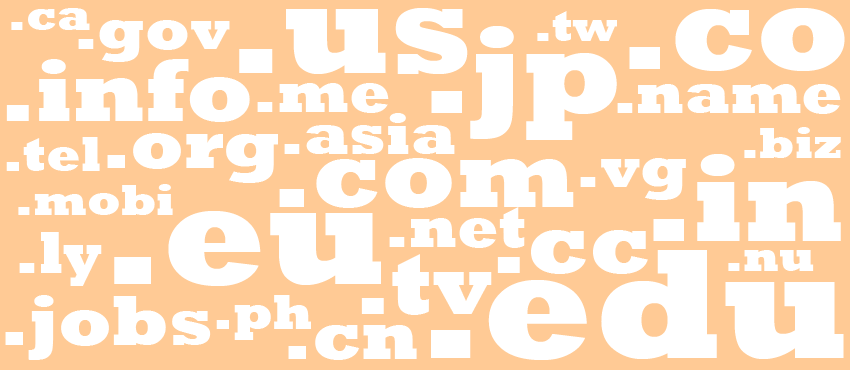According to a 2017 Episerver survey, 92 percent of first-time website visitors aren’t going to a company’s website to buy its products or services. Instead, they’re often just researching their options or taking the time to learn more about the business before deciding whether it’s the right company for them.
Though their findings and experience with the site (and the business itself) will likely dictate whether this initial visit leads to more engagement down the line, the reality is that a company’s domain name is the first step to accessing this content. That makes choosing the right domain critical to making a good first impression. Why is this so important?

3 Reasons Why Domain Name Matters
Your domain name is like the sign that hangs outside a brick-and-mortar store. It doesn’t matter how much you’ve worked on your business’s interior design or how wonderful you’ve made the customer’s shopping experience, if your target consumer isn’t drawn in by your sign out front, they’re not likely to take the time to check you out any further.
Secondarily, your chosen domain name can either enhance your company’s reputation or detract from it. For instance, if you’re a business that offers carpet cleaning services for commercial customers, which domain do you think would be viewed more positively from a company who is checking you out: procarpetcleaners.com or wescrubyourrugs.com? The first one, right?
A third reason domain name is so important is that it impacts your SEO, or search engine optimization. In other words, your domain can potentially help direct more customers your way if you select a name that, in addition to representing your brand, also improves your rank in your consumers’ search engine results.
How to Pick the Best Domain for Your Business
Because all of these factors matter—your ability to attract your consumer with your domain, what the domain says about your company, and whether it’s able to help you attract more customers—you want to pick the best domain for your business. According to the SEO experts at Moz, this involves:
- Thinking about your brand while also nixing hyphens and numbers in your domain because “they sound generic, or strange”
- Choosing a domain name that is easy to say and possibly even gives an idea of what your website is about (such as WeedKiller.com or LowcalRecipes.com)
- Keeping your domain name as short as possible while also including a broad keyword in it, if possible, while avoiding exact or partial-match keywords since Google frowns upon them
- Making a .com your first choice, with a .net or a .co your next option if a .com isn’t available for your desired domain name
- Checking to ensure that you’re not infringing on another company’s trademark by using that particular domain

Once you’re ready to proceed your next step is to register your domain name. This means making sure it is available and not being used by another business. If it is currently taken, you may need to contact the current user and ask if you can purchase it or hire a domain broker to do this for you.
Finally, before you spend your hard-earned money on your own URL, take the time to research the registration provider to ensure that it offers the services you want. This way, you’ll increase the likelihood that you will buy your domain from a company that is better able to meet your needs regarding price, security, and other website-related considerations.
Conclusion
Choosing the right domain name matters. Now that you know how to do that, all you have to do register it so that your consumers can begin to discover that you’re the right business for them.

